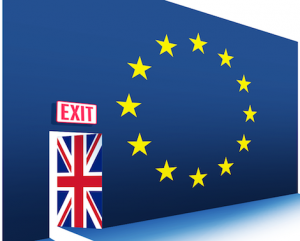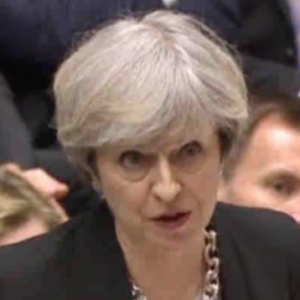Henry Hill: Brokenshire threatens direct rule if no deal reached in Ulster
Government gives Ulster parties more time to reach a deal
Today will mark the first day that senior civil servants in Northern Ireland will take direct control of provincial budgets, according to the News Letter.
The Belfast Telegraph reports that James Brokenshire, the Northern Irish Secretary, has warned that there is only a small window to salvage devolved government after Monday’s deadline for forming an Executive passed without agreement.
Under the devolution model in Northern Ireland, the largest party from each of the two principal communities must agree to form a coalition to share the Executive, along with any other party of sufficient size which chooses to take part.
As Sam McBride points out, the road from civil service auto-pilot to ‘direct rule’ – effectively administration by the Northern Ireland Office – is a short one, for all that Sinn Fein posture that it is ‘not an option’.
Michelle O’Neill, their ‘northern leader’, insists that Brokenshire’s only recourse is another election. It’s hard to judge the extent to which this is a bluff: the last election certainly went very well for them, but it’s not clear how financially equipped any of the parties are for another go.
Yet despite that fact Brokenshire seems to be playing down the prospect of another poll, whilst making clear that the Government is willing to reintroduce direct rule if required. After all, there must be somebody politically accountable for the Northern Irish civil service.
If that happens the long-term future of the current arrangements is unclear. The DUP are warning that Sinn Fein have run out of patience with devolution, focusing instead on bolstering their position in the Republic and trying to exploit Brexit. It certainly seems as if the death of Martin McGuinness has coincided with a change in the party’s strategy regarding Stormont – although it bears remembering that he did collapse the last administration.
One final option the Secretary of State might consider has been floated by the News Letter: should MLAs stop being paid if the legislature collapses? It would certainly incentivise them to strike a deal.
Meanwhile the Ulster Unionists have crowned Robin Swann their new leader. Mike Nesbitt, his predecessor, had to step down after a very disappointing set of election results. Swann seems likely to be a more traditional figure than his predecessor, which will probably help the party to stabilise.
May stalls Sturgeon as unionists start trying to build campaign
The Prime Minister has declined to open negotiations with the Scottish Government on a second independence referendum after the Scottish Parliament voted to ask for one, the Scotsman reports.
This sort of boldness is a marked change from the typical unionist strategy of the previous two decades – giving in – but the Prime Minister has at several reasons to play for time.
First, the Government won’t want the distraction of an existential struggle for the territorial integrity of the nation in the midst of the Brexit negotiations. The Government only has so much bandwidth.
Second, as James Forsyth points out, neither Theresa May nor the Scottish Conservatives seem to believe that a second independence is inevitable. This absence of unionism’s usual fatalism likely explains the unexpectedly bold strategy: they believe that if a referendum can be pushed back beyond the next Scottish elections in 2021, it may not happen at all.
After all, pressure on the SNP’s domestic agenda is already mounting, and both Ruth Davidson and David Mundell have
Indeed with the exception of a finance bill needed to keep the lights on it’s now been more than a year since the Scottish Parliament actually passed a law.
Third, should such optimism be misplaced then unionists need space to build and road-test the next pro-Britain campaign. Because one of the few things veterans of Better Together seem to agree on is that it should be nothing like Better Together.
The Spectator has some news on this front, although it isn’t heartening: apparently the skeletal campaign has the interim name ‘New Direction’, and is considering hiring Andrew Cooper as its pollster.
With Labour determined not to get involved in the main cross-party campaign (they’ll probably float around on the fringes advocating whatever split-the-difference panacea is calling itself ‘federalism’ that year), it’s almost a certainty that the net campaign will be dominated by Tories.
That’s not the handicap it was – both May and Davidson poll well in Scotland – but it will take time to build a campaign around such new and unexpected foundations as a large and relatively popular Conservative opposition in Holyrood.
It would be a fatal error, however, simply to recreate an ersatz Stronger In. All the Scottish unionist leaders may have campaigned for it, but that’s still no reason to copy a loser.
Welsh Labour MP renounces devolution
Ann Clwyd, the long-serving MP for Cynon Valley, has declared that her long-standing support for devolution to Wales “was wrong”, according to ITV.
In her new autobiography, Rebel with a Cause, she claims to have been “bitterly disappointed” by the Welsh Assembly’s record – despite Labour having run it either alone or in coalition since its inception.
Clwyd points out something that we have previously highlighted in this column: how the devolved government is so thin-skinned that it tries to present criticism of its record as an insult against Wales, thereby preventing the spread of good ideas that was meant to be one of devolution’s boons.
Her complaints about the Welsh party’s dismissive treatment of critical MPs also sheds a new light on Carwyn Jones’ comments of last week about how little UK Labour ‘interferes’ with him.
read more






